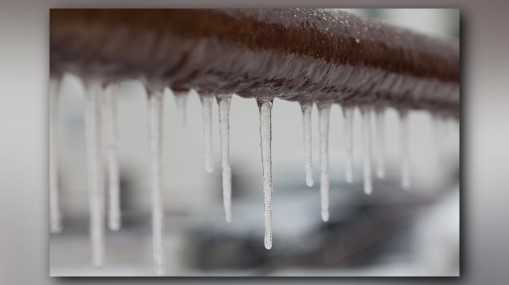Crucial Tips to Avoid Frozen Plumbing in Winter
Crucial Tips to Avoid Frozen Plumbing in Winter
Blog Article
We've noticed this post about How to Prevent Your Pipes From Freezing listed below on the net and decided it made perfect sense to talk about it with you here.

Cold weather can damage your plumbing, especially by freezing pipes. Below's how to stop it from happening and what to do if it does.
Intro
As temperatures decrease, the danger of icy pipes increases, possibly causing costly repair services and water damages. Comprehending how to stop frozen pipelines is important for property owners in cold climates.
Comprehending Icy Pipes
What triggers pipelines to ice up?
Pipes ice up when subjected to temperatures listed below 32 ° F (0 ° C) for prolonged periods. As water inside the pipelines ices up, it broadens, taxing the pipe wall surfaces and potentially creating them to rupture.
Dangers and problems
Icy pipes can result in water disruptions, residential property damage, and costly repairs. Burst pipelines can flood homes and create substantial architectural damages.
Indications of Frozen Pipes
Recognizing icy pipes early can stop them from bursting.
Just how to determine icy pipelines
Look for decreased water circulation from faucets, unusual smells or noises from pipelines, and noticeable frost on exposed pipelines.
Avoidance Tips
Shielding susceptible pipes
Wrap pipes in insulation sleeves or use warm tape to secure them from freezing temperature levels. Concentrate on pipes in unheated or exterior areas of the home.
Home heating techniques
Keep interior rooms adequately warmed, particularly areas with plumbing. Open up cupboard doors to allow warm air to flow around pipelines under sinks.
Shielding Outdoor Plumbing
Yard hose pipes and outside faucets
Separate and drain pipes garden hose pipes before winter season. Set up frost-proof spigots or cover exterior faucets with protected caps.
What to Do If Your Pipes Freeze
Immediate activities to take
If you suspect frozen pipes, keep taps available to alleviate stress as the ice melts. Utilize a hairdryer or towels soaked in hot water to thaw pipelines gradually.
Long-Term Solutions
Structural changes
Think about rerouting pipelines far from exterior walls or unheated areas. Add added insulation to attics, cellars, and crawl spaces.
Upgrading insulation
Invest in top quality insulation for pipes, attics, and walls. Appropriate insulation helps keep consistent temperature levels and minimizes the danger of icy pipes.
Conclusion
Stopping icy pipes calls for proactive measures and quick actions. By comprehending the causes, indications, and preventive measures, home owners can safeguard their pipes throughout cold weather.
Helpful Tips to Prevent Frozen Pipes this Winter
UNDERSTANDING THE BASICS: WHY PIPES FREEZE AND WHY IT’S A PROBLEM
Water freezing inside pipes is common during the winter months, but understanding why pipes freeze, and the potential problems it can cause is crucial in preventing such incidents. This section will delve into the basics of why pipes freeze and the associated problems that may arise.
THE SCIENCE BEHIND FROZEN PIPES
When water reaches freezing temperatures, it undergoes a physical transformation and solidifies into ice. This expansion of water as it freezes is the primary reason pipes can burst. As the water inside the pipe freezes, it expands, creating immense pressure on the walls. If the pressure becomes too great, the pipe can crack or rupture, leading to leaks and water damage.
FACTORS THAT CONTRIBUTE TO PIPE FREEZING
Low Temperatures: Extremely cold weather, especially below freezing, increases the risk of pipes freezing. Uninsulated or Poorly Insulated Pipes: Pipes located in unheated areas, such as basements, crawl spaces, or attics, are more prone to freezing. Insufficient insulation or lack of insulation altogether exacerbates the problem. Exterior Wall Exposure: Pipes running along exterior walls are susceptible to freezing as they encounter colder temperatures outside. Lack of Heating or Temperature Regulation: Inadequate heating or inconsistent temperature control in your home can contribute to frozen pipes. PROBLEMS CAUSED BY FROZEN PIPES
- Pipe Bursting: As mentioned earlier, the expansion of water as it freezes can cause pipes to burst, resulting in significant water damage.
- Water Damage: When pipes burst, it can lead to flooding and water damage to your property, including walls, ceilings, flooring, and personal belongings.
- Structural Damage: Prolonged exposure to water from burst pipes can compromise the structural integrity of your home, leading to costly repairs.
- Mold and Mildew Growth: Excess moisture from water damage can create a favorable environment for mold and mildew growth, posing health risks to occupants.
- Disrupted Water Supply: Frozen pipes can also result in a complete or partial loss of water supply until the issue is resolved.
WHY CERTAIN PIPES ARE MORE PRONE TO FREEZING
- Location: Pipes located in unheated or poorly insulated areas, such as basements, crawl spaces, attics, or exterior walls, are at higher risk of freezing.
- Exterior Pipes: Outdoor pipes, such as those used for irrigation or exposed plumbing, are particularly vulnerable to freezing as they are directly exposed to the elements.
- Supply Lines: Pipes that carry water from the main water supply into your home, including the main water line, are critical to protect as freezing in these lines can affect your entire plumbing system.
- Underground Pipes: Pipes buried underground, such as those connected to sprinkler systems or outdoor faucets, can be susceptible to freezing if not properly insulated.
https://busybusy.com/blog/helpful-tips-to-prevent-frozen-pipes-this-winter/

I recently found that piece of writing on Helpful Tips to Prevent Frozen Pipes this Winter while perusing the web. Be sure to pause to promote this write-up if you enjoyed reading it. I appreciate your readership.
Click Here Report this page